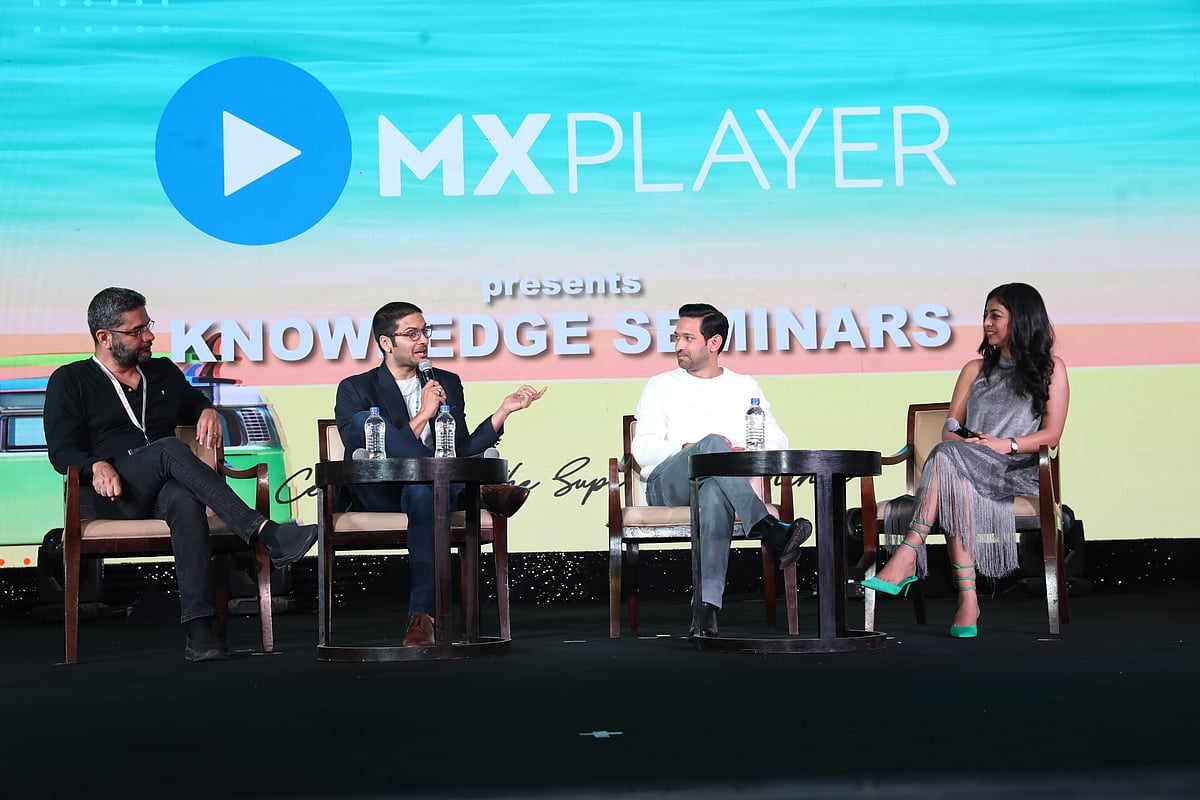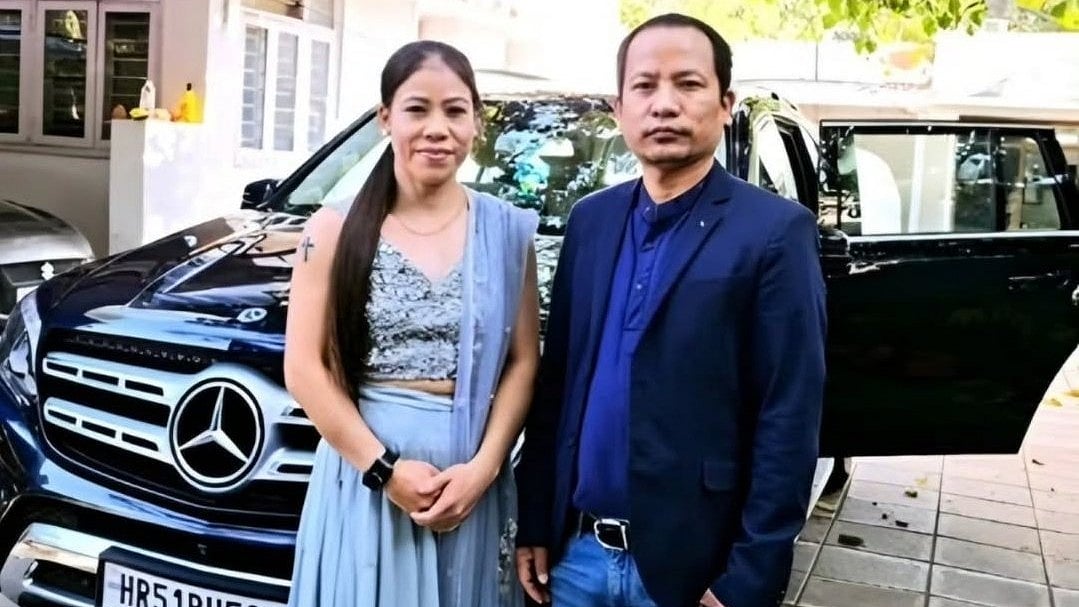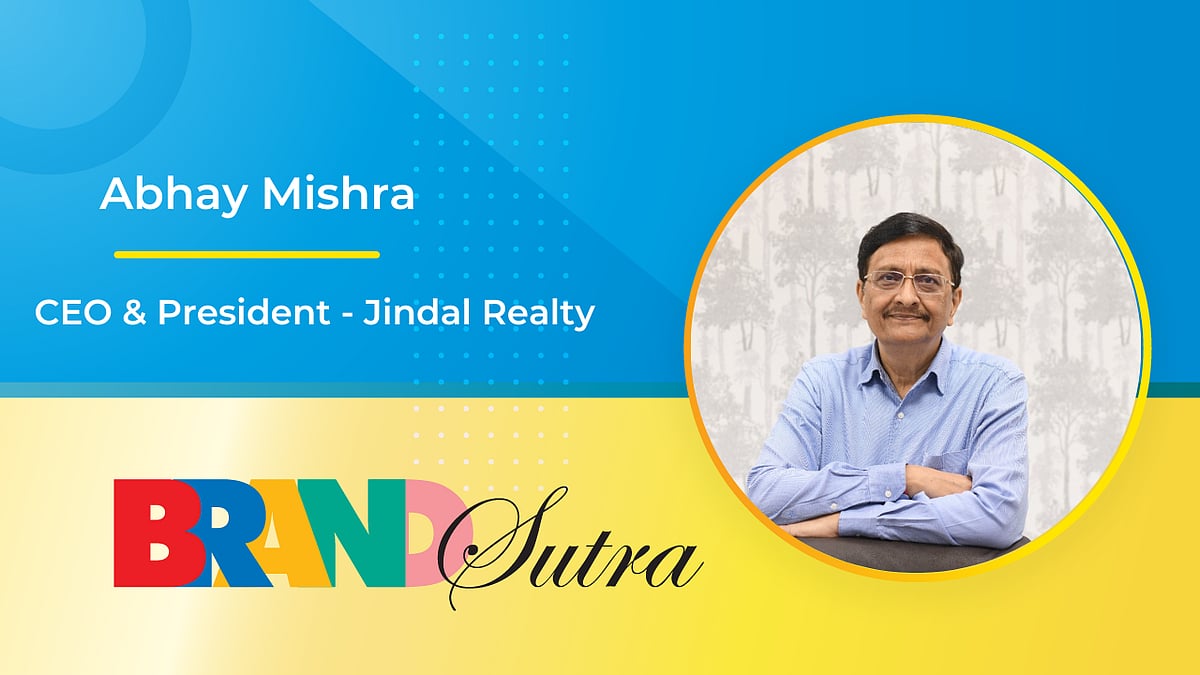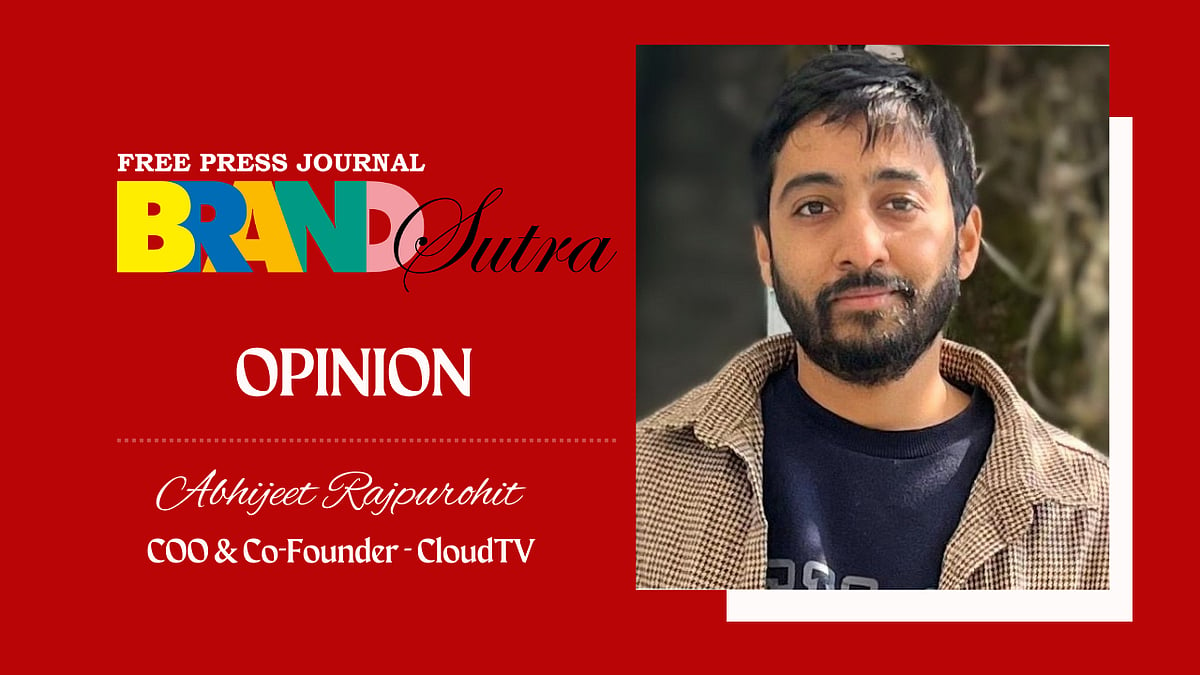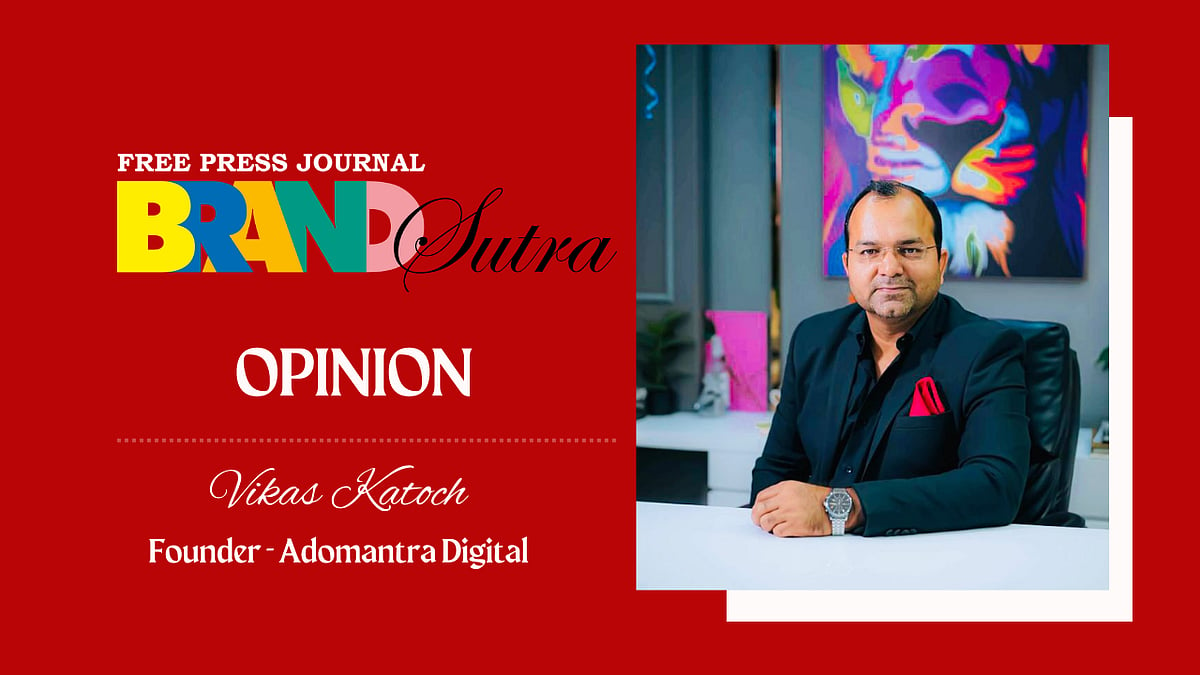An interesting session on the second day of Goafest 2022 was devoted to the ‘OTT Superpower - Freedom and Nuances of Creativity’. Artistes Vikrant Massey and Ali Fazal (of Mirzapur fame) were joined by Gautam Talwar, Chief Content Officer, MX Player in a session moderated by anchor and creative director, Atika Farooqui.
Farooqui opened the session stating that Mirzapur was a turning point in the OTT space, especially with regard to content and creativity. Massey agreed that it was one of the most rewarding and endearing experiences of his life. “OTT in the last 5-6 years has given any form of story-telling an opportunity to be truly creative and pushed the boundaries with the audience to the maximum, forcing not just the story-tellers, the artistes but also the audience to be nimble and adapt. It’s an exciting time to be an artiste,” he said. Fazal said that cinema in the last 2-3 years had changed tremendously. “While it has been gratifying to see our work being applauded and appreciated, we are just one button away from rejection when it comes to OTT, because right next door is another critically acclaimed show,” he said.
Farooqui then stated that another great thing about OTT was that there was a lot of reality in the story-telling and being fake meant instant rejection by the audience. She asked Talwar what choices had MX Player made with regard to content to get ahead. Talwar said, “As an ecosystem, we understand the 30-seconder, we understand the 1,000-hour television content very well, we understand the 120-minute feature film format very well. But I think none of us know the 300 or 400-minute premium content development space very well. We are at the beginning of this ecosystem and it’s a long learning curve for all of us. It is undoubtedly a writer’s medium. There is so much talent the OTT space borrows from advertising, from television and from film to create this ecosystem. The authenticity of OTT comes from the melting pot of these three to create this fourth ecosystem.”
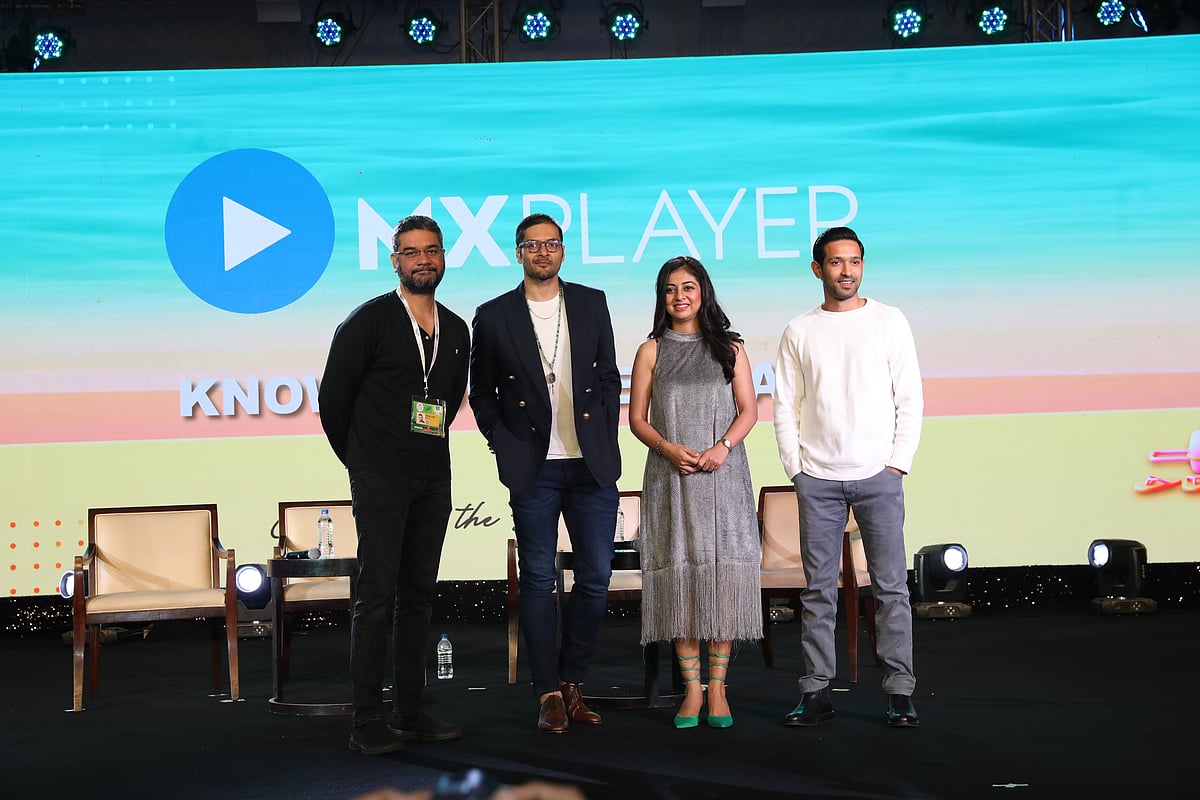
L-R, Gautam Talwar, Ali Fazal,Atika Farooqui,Vikrant Massey |
Fazal added that with OTT, there is this desire to get out of the formula-based structure. “A non formula-based approach is where OTT gets a bit of freedom. This is where we as actors are pushing the bar because that’s the only way we’ll get to tell original stories as fearlessly as we can.” He also added, “Cinema must not die. The idea of film watching is about community watching. That must be celebrated and kept alive. The idea of OTT is to be able to tell more and more stories so that people can get different perspectives and be exposed to different ideas and narratives.”
Massey said, “Cinema has always been part of our staple culture. And that shouldn’t ever change. However, one very strong advantage with OTT platforms is that everything is so inter-connected that it’s almost like a door-to-door medium like television. The advent of OTT has knocked us out because the consumption pattern of audiences has changed. Most of the people I know who have watched Mirzapur, have watched it on their phones. And that is the consumption pattern of audiences today.”
Farooqui asked if different mediums meant different rules for the actors. Fazal said there is no such thing as absolute freedom. “There are rules to each medium and yet, each medium is also free to adhere or change the rules. But freedom comes with responsibility,” he added. Talwar, on the other hand, said, “I don’t think we tell a story simply because we have the freedom to tell it. OTT platforms have democratised story-telling and given the 18-22-year-old content that he/she didn’t have before. Television content is catered to the FMCG consumer, the woman of the house or even remote villager. Cinema is expensive and great stories are few and far between. OTT has given the youth of this country a medium and access to genres that are not available to them anywhere else. There is now a new kind of story-telling and we are all trying to figure out this new ecosystem. Machine and data are giving us huge insights and we are constantly looking at what’s working and what’s not. However, story-telling will always be from a gut level and will always be at the crux of all of this.”
Speaking about personal consumption versus family consumption in the OTT space, Farooqui mentioned studies that showed family viewing of OTT content was gaining popularity. Talwar, however, said, "OTT is about a personal screen, personal choice of what to watch with a machine, we are trying to understand what an individual’s personal choice is and to deliver it. There is no appointment viewing of OTT content. An individual can watch a particular episode while going to work and someone in the family may watch the same series but be on a different episode. Consumer behaviour shift is happening in real time.”
So, is OTT for family viewing or only for personal viewing, asked Farooqui to the panel. Talwar said there were statistics that revealed that over 95% of most OTT content across all platforms is mobile viewing. A very small percentage of the population watches OTT on big screens or connected devices. “OTT content is also made for ‘Bharat’ - that one little boy sitting in Ludhiana, or even the Uber drivers in metros. These are the audiences that have the time. India is a time-rich and money-poor country. This is the reason why we create what we create. But at the same time, we are attempting for the first time premium long format content. But will the 18-22 age group have the patience for it? Sharechat tells us that three minutes is long enough! It’s all very challenging. So, in this environment, family viewing is a little far away,” stated Talwar.
The panelists agreed that OTT has changed the way we look at heroes today. Toxic masculinity or larger than life heroes were admired from afar. But today, heroes are relatable. Fazal commented, “Story-telling is just an extension of the world that we are living in. Cinema has always held a mirror to society. Today, we see more stories talking about equality, men who aren’t macho and have a sensitive side. Narratives are changing and as actors, we are all trying to raise our voices very differently. Today, we no longer think that boys should be told ‘not to cry like a girl’. This attitude has changed from the ground up.” Massey said that earlier, there was a strong hero worship culture but now because of access to different mediums, heroes too have become more accessible. “Story-telling reflects society and society reflects story-telling,” added Talwar. “Today, you can have multiple expressions of masculinity, society is accepting what is real. This is what has to be celebrated forever.”
Farooqui mentioned that a recent study revealed that out of the 50 or 60 crore people consuming OTT, less than 10% are subscribed. What does this say for the business model? Talwar said that is the reason why MX Player is a free platform. “In India, there’s never been a concept of paying for content. Instead, we’ve always paid a cable guy or a satellite dish company. If we have to extract money for content from a time-rich and money poor country, it is going to be a very tough battle. Right now, everyone is experimenting with different models and there is a growth in subscriptions that will reach a certain point and plateau and everyone will eventually have to figure out how to make money out of OTT. Right now, this is at an investment phase, but habits are shifting and once that happens substantially, like all true start-ups around the world, we’ll see monetisation happen.”
